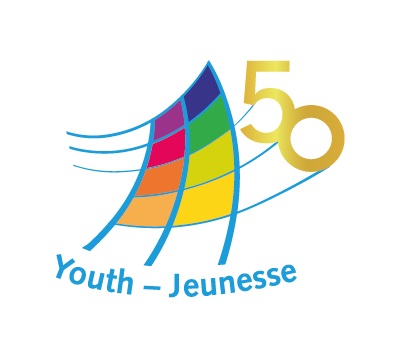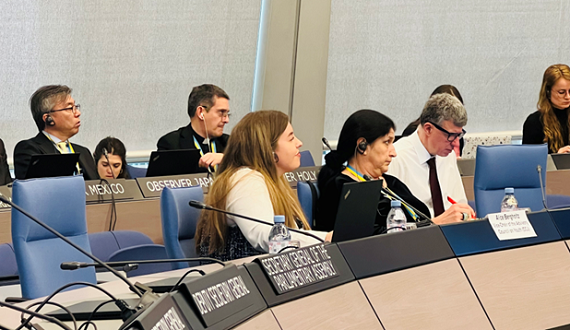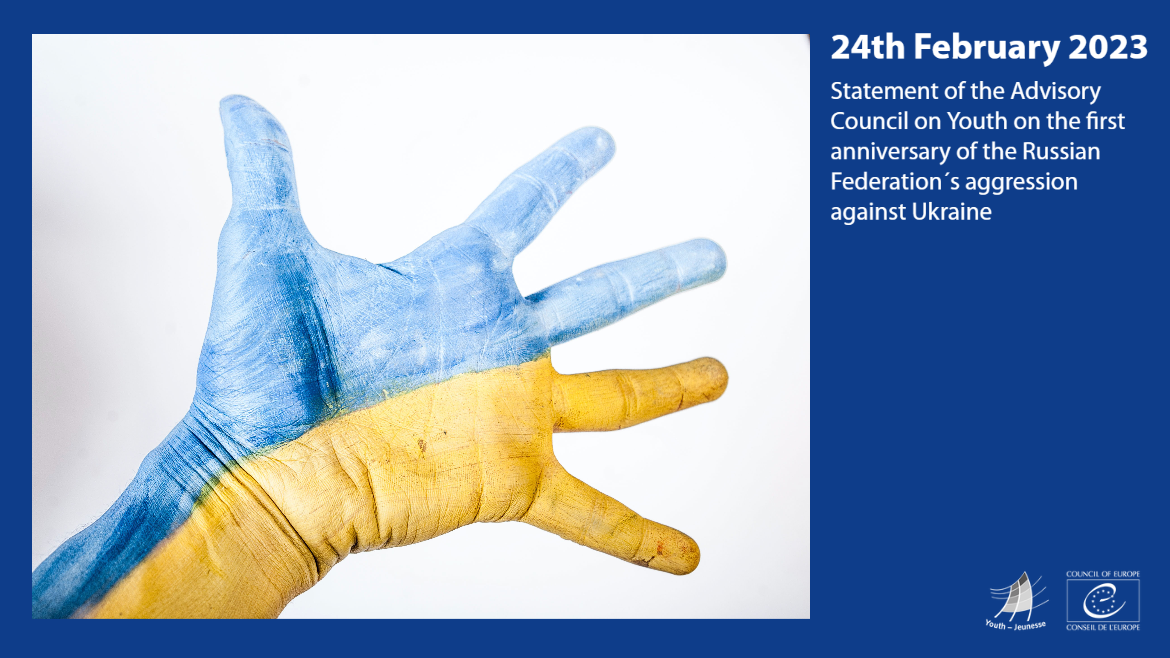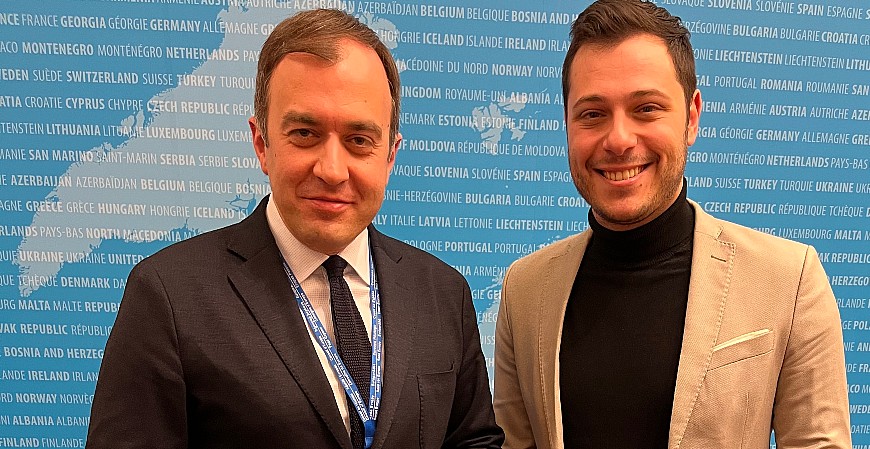Advisory Council on Youth
 What is the Advisory Council on Youth?
What is the Advisory Council on Youth?
The voice of young people in the Council of Europe
About the Advisory Council
The Advisory Council on Youth (CCJ) is the non-governmental partner in the co-management structure which establishes the standards and work priorities of the Council of Europe’s youth sector and makes recommendations for future priorities, programmes and budgets.
It is made up of 30 representatives from youth NGOs and networks in Europe and its main task is to advise the Committee of Ministers on all questions relating to youth. Specifically, the Advisory Council helps to ensure youth policies are mainstreamed into the Council of Europe's programme of activities by providing opinions and proposals to all of the Organisation's bodies. It also ensures that young people are involved in other activities of the Council of Europe and promotes the policies beyond the Organisation.
The Advisory Council on Youth promotes the co-management system in decision-making processes at all levels as a good practice for youth participation, democracy and inclusion, whilst preparing and encouraging young generations to take responsibility to build their desired society.
 In practice, the tasks of the Advisory Council on Youth are to:
In practice, the tasks of the Advisory Council on Youth are to:
- contribute to the effective mainstreaming of youth policies in the Council of Europe programme of activities by formulating opinions and proposals on general or specific questions concerning youth in the Council of Europe; where appropriate, address these opinions and proposals to the Committee of Ministers or other bodies of the Council of Europe. The Advisory Council on Youth may also be invited by the Committee of Ministers to formulate opinions on general or specific questions concerning youth policy;
- formulate opinions and proposals concerning the priorities, expected results and budget for the youth sector;
- promote the Council of Europe’s youth policies within the Organisation and beyond;
- designate, for two years, the CCJ members who shall be invited to represent it in the Programming Committee on Youth (CPJ), the co-management body in charge of establishing the programme of activities of the youth sector.
The Terms of Reference for 2022-25 concerning the Advisory Council on Youth were adopted by the Committee of Ministers in November 2021.
 Meet the Advisory Council on Youth
Meet the Advisory Council on Youth
Find out more about the members and the portfolios for which they have responsibility.
Meet the members >

 Meet the Bureau
Meet the Bureau
The Advisory Council on Youth elected its Bureau on 9 May 2022, by written procedure. The members are:
 Spyros Papadatos, chair
Spyros Papadatos, chair
 Alice Bergholtz, vice-chair
Alice Bergholtz, vice-chair
 Constantin-Alexandru Manda
Constantin-Alexandru Manda
 Nedeljka Ivošević
Nedeljka Ivošević
 Nickolas Pagonakis
Nickolas Pagonakis
 Structure
Structure
The CCJ's representatives on the Programming Committee on Youth were elected on 9 May 2022, by written procedure.
They are: Sarah-Anna Awad, Tilemachos Boni, Dimitrije Jovićević, Gubaz Koberidze, Maryam Majidova, Armine Movsesyan, Gianluca Rossino, Pia Šlogar. They sit on the CPJ in a personal capacity and not as representatives of their organisations.
The three substitutes are: Lukas Stede, 1st substitute, Léonard Ly Tri, 2nd substitute and Naira Sardaryan, 3rd substitute.
Three CCJ members below are rapporteurs for the Joint Council on Youth:
Gender Equality Rapporteur: Maryam Majidova
Rapporteur on on Roma[1] Issues: : Constantin-Alexandru Manda
Rapporteur on Mainstreaming Disability Issues: Timothy Rowies
[1] The term “Roma and Travellers” is used at the Council of Europe to encompass the wide diversity of the groups covered by the work of the Council of Europe in this field: on the one hand a) Roma, Sinti/Manush, Calé, Kaale, Romanichals, Boyash/Rudari; b) Balkan Egyptians (Egyptians and Ashkali); c) Eastern groups (Dom, Lom and Abdal); and, on the other, groups such as Travellers, Yenish, and the populations designated under the administrative term “Gens du voyage”, as well as persons who identify themselves as Gypsies.
 Statements and publications of the Advisory Council
Statements and publications of the Advisory Council
The opinions expressed in these statements are those of the Advisory Council on Youth and do not necessarily reflect the official position of the Council of Europe or its member states.
2022
2021
- Statement on World Mental Health Day, 10 October 2021
- Statement on European Action Day Against Islamophobia, 21 September 2021
- Statement on International Youth Day, 12 August 2021
- Statement on European Roma Holocaust Remembrance Day, 2 August 2021
- Statement on International Day against Homophobia, Transphobia, and Biphobia, 17 May 2021
- Statement on International Roma Day, 8 April 2021
- Statement on International Day for the Elimination of Racial Discrimination, 21 March 2021
- Statement on addressing Islamophobia
2020
- Human Rights Day, 10 December 2020
- European Day of Languages, 26 September 2020
- European Action Day Against Islamophobia, 21 September 2020
- The Advisory Council on Youth (CCJ) expresses its support for young people in Belarus
- Statement on Serbia
- World Youth Skills Day, 15 July 2020
- World Refugee Day, 20 June 2020
- International Day Against Homophobia, Transphobia and Biphobia, 17 May 2020
- Statement on Romani Resistance Day, 16 May 2020
- Statement on Europe Day, 5 May 2020
- Statement on World Press Freedom Day, 3 May 2020
- Statement on International Roma Day, 8 April 2020
- Open letter to young people and youth organisations working with and through the Council of Europe
2019
- Statement on the concern with the escalating humanitarian crisis in Syria, 29 October 2019
- Statement on the No Hate Speech Network, 29 October 2019
- Statement on World Food Day, 16 October 2019
- Statement on International Youth Day, 12 August 2019
- Statement on "Council of Europe Youth Department budget cuts" by Political Party Youth Organisations (PPYOs) and the European Youth Forum
- Justice and Protection for ALL - Statement IDAHOT, 17 May 2019
- Statement on International Roma Day, 8 April 2019
2018
2017
2016
- Statement of the Advisory Council on Youth of the Council of Europe on the International Day of Persons with Disabilities, 3 December 2016
- Comments of the AC and the Gender Equality Rapporteur of the Joint Council on Youth (CMJ) on the Council of Europe draft Disability Strategy for 2017-2023
- Comments on the Committee on the Rights of the Child Draft General Comment on the implementation of the rights of the child during adolescence
- Statement on celebrating International Roma Day (8 April)
- Opinion on Parliamentary Assembly forthcoming Resolution “Sport for all: bridge to equality, integration and social inclusion (8 February)
- Statements on Parliamentary Assembly forthcoming Report on “Youth against corruption” (27 January)
- Comments on Committee of Ministers response to Congress Recommendation 367(2015) on youth participation (12 January)

Disclaimer:
Any statements or opinions expressed in these Tweets are made by the members of the Advisory Council on Youth in their personal category and do not represent the official views of the Council of Europe or its member States.



